All Stories
-
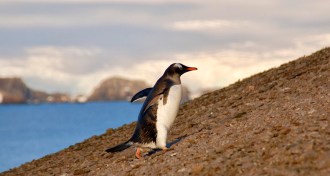 Ecosystems
EcosystemsVolcanic eruptions nearly snuffed out Gentoo penguin colony
Penguin poop dumps data on how a Gentoo colony responded to ancient volcanic eruptions.
-
 Genetics
GeneticsGene knockouts in people provide drug safety, effectiveness clues
People naturally lacking certain genes give clues about drug safety and efficacy, a study in Pakistanis shows.
-
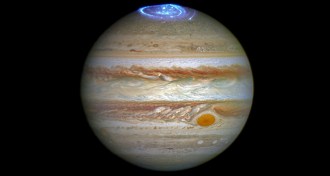 Planetary Science
Planetary ScienceJupiter’s Great Red Spot has company. Meet the Great Cold Spot
A previously unidentified dark mark on Jupiter has been dubbed the “Great Cold Spot” because of its temperature and resemblance to the planet’s Great Red Spot.
-
 Health & Medicine
Health & MedicineVaccinating pregnant women protects newborns from whooping cough
Pregnant women who receive the pertussis, or whooping cough, vaccine pass on to their new-borns immunity to the potentially deadly bacterial infection.
-
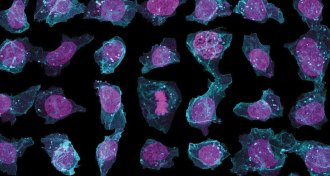 Life
LifeCells’ stunning complexity on display in a new online portal
A new online explorer tool from the Allen Institute for Cell Science shows 3-D models of cell interiors.
-
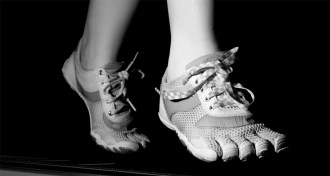 Physics
PhysicsPhysics trips up efforts to keep shoelaces tied
Loose laces are due to inertia and force of feet hitting the floor.
-
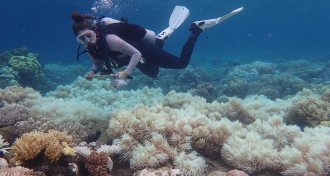 Climate
ClimateThe Great Barrier Reef is experiencing a major coral bleaching event right now
A second coral bleaching event has struck the Great Barrier Reef in 12 months, new observations reveal, raising concerns about the natural wonder’s future.
-
 Science & Society
Science & SocietyEinstein’s latest anniversary marks the birth of modern cosmology
A century ago, Einstein gave birth to modern cosmology by using his general theory of relativity to describe the universe.
-
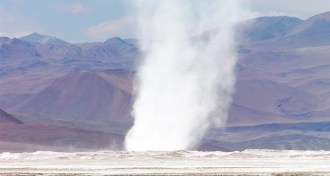 Earth
EarthWhirlwinds of crystals called gravel devils spotted in Andes Mountains
Large whirlwinds in northern Chile can carry gravel-sized gypsum crystals several kilometers before dumping them in mounds.
-
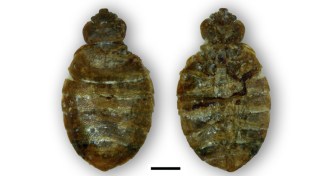 Paleontology
PaleontologyBedbugs bugged prehistoric humans, too
Scientists have found the oldest known specimens of bedbug relatives in an Oregon cave system where ancient humans once lived.
-
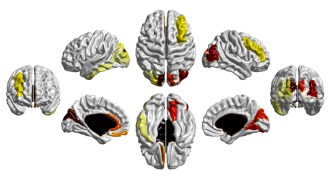 Humans
HumansScientists seek early signs of autism
The search for autism biomarkers, in the blood and the brain, is heating up.
-
 Health & Medicine
Health & MedicineGenetic risk of getting second cancer tallied for pediatric survivors
Inherited mutations, not only treatment, affect the chances that a childhood cancer survivor will develop a second cancer later in life.